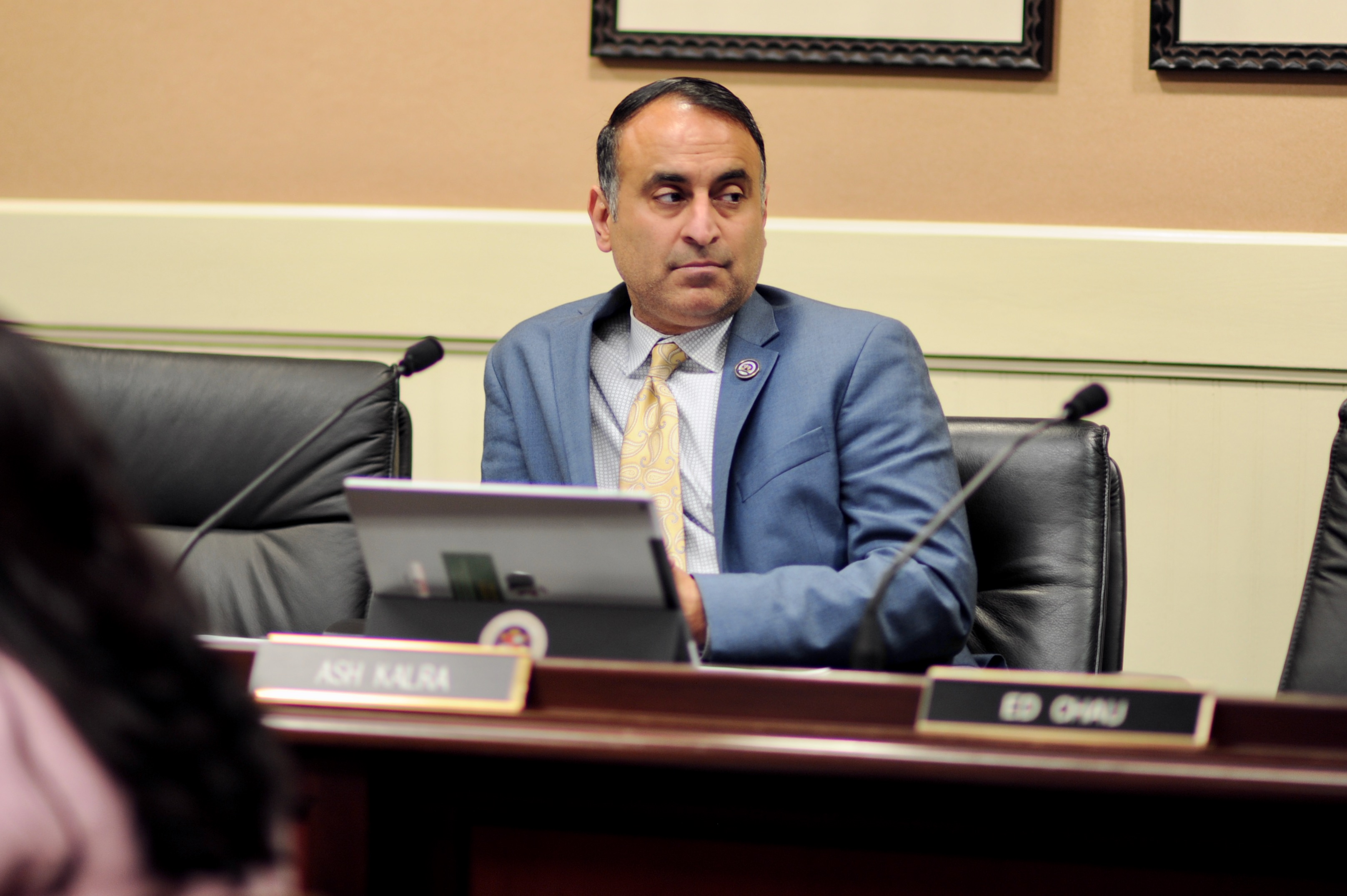
Sen. Lola Smallwood-Cuevas. (Photo: sd28.senate.ca.gov)
SB 627: Displaced Workers Retention and Transfer Rights
Prohibits a chain establishment employer from closing without 60 days notice to employees before the closure
By Chris Micheli, February 26, 2023 9:46 am
Senate Bill 627 by Sen. Lola Smallwood-Cuevas (D-Los Angeles) was introduced to address the issue of displaced workers. SB 627 would add Part 9.7 (commencing with Section 2550) to Division 2 of the Labor Code. Part 9.7 would be titled, “Displaced Worker Retention and Transfer Rights.”
The new law would define the following terms: “chain,” “covered establishment,” “covered worker,” “displacement notice,” and “employer.” An employer would be prohibited from closing a covered establishment unless the employer gives a displacement notice to the covered workers and their exclusive representative, if any, 60 days before the closure takes effect. This displacement notice would have to be given in one of the four specified forms and contain six items of information.
In addition, an employer, for one year after the closure of a covered establishment, would be required to provide to all covered workers the opportunity to remain employed by the employer and to transfer to a location of the chain within 25 miles of the covered establishment subject to closure as positions become available. The employer would be required to maintain a preferential transfer list of covered workers, date of hire, and their position at the time of the closure and thereafter would have to make offers of transfer to covered workers in order of greatest length of service based on the worker’s date of hire at the chain.
Within five business days of a position becoming available at an establishment of the chain that is within 25 miles of the covered establishment, an employer would be required to offer covered workers all available positions for which the covered workers are qualified. A covered worker is qualified for a position if the worker held the same or similar position at the covered establishment at the time of the closure. The covered worker would get five days to decide on the offer.
Moreover, an employer would be required to retain specified records for at least three years, commencing on the date of the written notice regarding the closure, for each covered worker. A transfer would be considered complete when the covered worker accepts the offer of employment within 10 days of the offer of transfer.
The Division of Labor Standards Enforcement would have exclusive jurisdiction to enforce this section (rather than a private right of action), and this law would only be enforced in a specified manner. Also, no criminal penalties would be allowed to be imposed. Violations of this law would be subject to a civil penalty of $100 for each worker whose rights were violated, as well as $500 as liquidated damages per work for each day their rights were violated.
The Labor Commissioner would be required to enforce this section, including investigating an alleged violation and ordering appropriate temporary relief to mitigate the violation pending the completion of a full investigation or hearing. A court in this state would be allowed to issue preliminary and permanent injunctive relief to vindicate the rights of workers. Interest would have to be awarded on any amounts due.
The Labor Commissioner would be authorized to adopt regulations to implement this new law. This new law would not apply to an employee covered by a collective bargaining agreement if the agreement expressly provides for the wages, hours of work, and working conditions of the employees, premium wage rates for all overtime hours worked, a regular hourly pay of not less than 30 percent more than the state minimum wage rate, and expressly waives the requirements of this law in clear and unambiguous terms.
This new law would not be construed to limit a worker’s right to bring legal action for wrongful termination. Also, it would not preempt any city, county, or city and county ordinances that provide equal or greater protection to workers.
- Probate Code Could Be a Basis for Statutory Interpretation Principles - February 22, 2026
- Conservation Banks - February 22, 2026
- Mergers of Unincorporated Associations - February 21, 2026





What is this? A companion piece, like a one-two punch, to Asm Chris Holden’s AB 647, the “grocery workers” bill that “creates a 100-day transition employment period for the successor grocery employer”? Which is none their $%@# business?
Wow, these legislators are really going for the jugular. They make it look like they are writing state law to “help workers” when they are doing no such thing. God forbid this stuff should pass; it will negatively affect EVERYONE in the state. And do we need to be reminded that these legislators don’t give a rat’s rear end about workers? If they did they would have spoken up during phony Covid shutdowns and lockdowns to re-open business ASAP. And made sure that those who were unemployed through no fault of their own actually received EDD help instead of allowing EDD to finance every ne’er-do-well and criminal from coast to coast, including those in prison, to the tune of $40 BILLION.
Democrat Sen. Lola Smallwood-Cuevas was a community organizer with SEIU Local 1877. No doubt organized labor is behind this legislation? Maybe she’s even getting some financial incentives to push it?
Interesting, TJ. Thanks for the information.